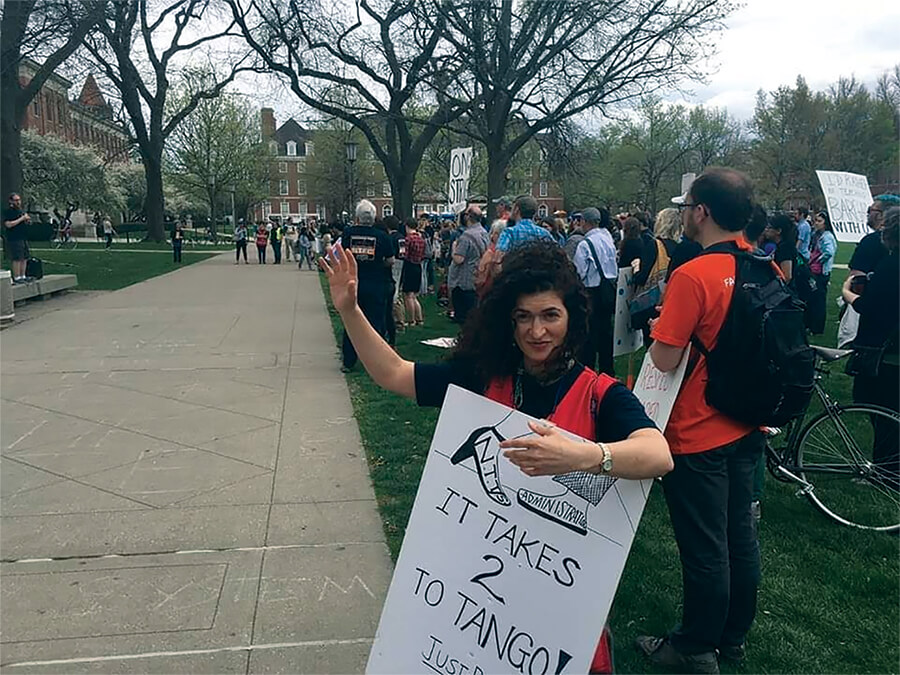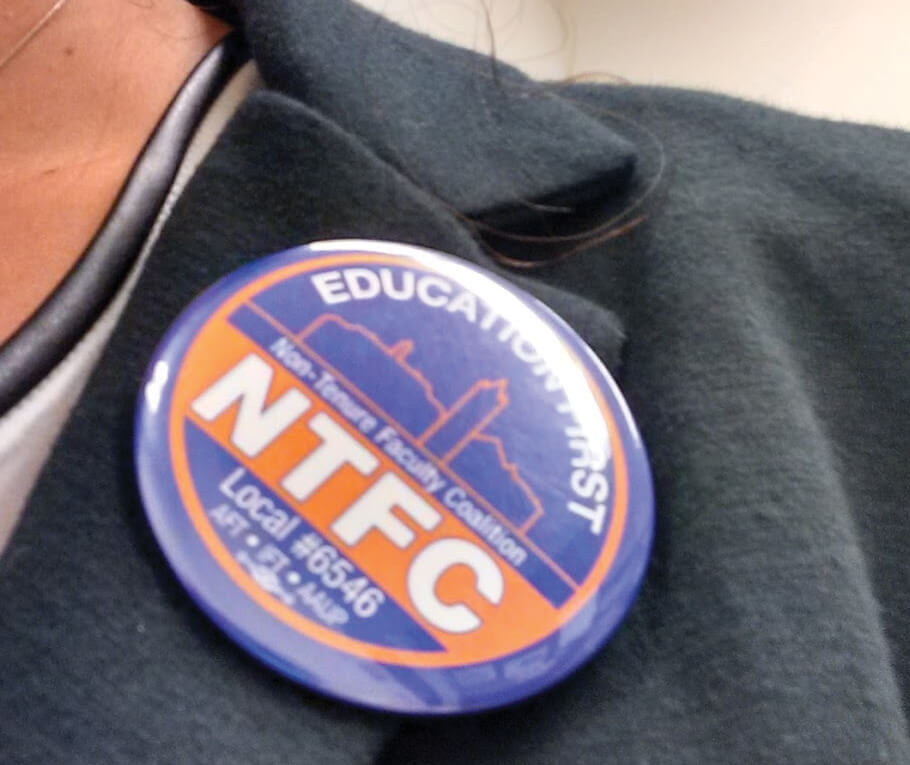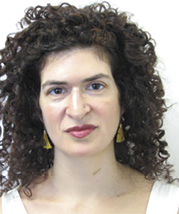Above: Detail from Drawing, late 19th century. Brush and gouache on cream paper, mounted on cream paper. 9 1/16 x 8 1/8 in. Cooper Hewitt, Smithsonian Design Museum, Gift of Friends of Drawings and Prints with special assistance from Theodore E. Stebbins, Jr. and Phyllis Dearborn Massar
THE PROFESSION
Six years after graduating with an award-winning dissertation, I have still not converted it into a book. Having heard numerous scholars’ stories through my work in the academic labor movement and in several higher education settings, I now realize how deep the misconceptions run. Both aspiring and senior scholars need to realize how labor-market conditions influence academic publishing, especially first books. Specifically, non-tenure-track scholars do not have the research support and time needed for monograph completion and it is bad advice to tell them to do it for marketability’s sake. Unfinished books, however, need not condemn us to the loss of our scholarly or intellectual identities.
Writing a first book is a challenge for anyone, and a tenure-track job provides crucial resources. Despite the stress and service requirements of an assistant professorship, occupying such a position gives one library access, mentorship programs, sabbaticals and research leave, travel funding, a book-buying budget, possibly a research assistant, and of course stable employment. Most PhDs will not get these jobs; the fortunate get full-time non-tenure-track (NTT) positions, and only the luckiest few get tenure-track positions.

Courtesy of the author
In order to produce scholarly writing one should remain in the profession, so postdocs or visiting assistant professors must write job applications throughout the academic year. NTTs on one-year contracts vulnerable to nonrenewal do, too. Recent PhDs repeat this cycle annually until they find stable employment or despair. A single application can demand eighty pages of cover letter, CV, teaching portfolio, various “statements,” writing samples, and more. This takes a great deal of research, writing, editing, and mental energy away from book projects. Rationing self-funded conference travel may produce one paper a year and networking, but one might need the money for last-minute trips to interview at conferences (where it is sometimes too late to submit an abstract). Favored candidates spend dozens of hours preparing for campus interviews. The dejection of rejection exhausts young scholars who have come close. Only some can cope by writing.
Summer can be a good time to make progress on the book—when it is not devoured by months of apartment-hunting, packing and moving and unpacking, establishing oneself in a new job and home. Some postdocs and VAPs do this annually, some every few years, often on their own dime. Transition upon arrival adds at least one month to the preparation time for a new semester. We end our summer wandering around campus picking up keys, talking to human-resources personnel, and finding classrooms. We sit in orientations (if offered), register new email addresses, learn new campus software, explore new bureaucracies, study new names and faces, and enroll uprooted children in school. The luckiest set up new offices and computers, and arrange for long-overdue health care. By September, it is time to update CVs and cover letters for the new application cycle.

Courtesy of the author
When the applying-and-moving cycle is annual and the teaching is full-time, who can be a prolific writer? I warn recent PhDs not to waste these years applying for nonrenewable, one-year gigs of more than 1/1 teaching. I urge senior colleagues to stop advertising those positions, which harm morale and careers. Repeated removal from mentors, friends, partners, and communities takes an emotional and intellectual toll and can reduce one’s capacity for solitary activities such as writing.
We hear early on that spending “too much time on teaching” threatens our scholarly success. But NTTs are hired to teach, not to publish.
We hear early on that spending “too much time on teaching” threatens our scholarly success. But NTTs are hired to teach, not to publish. Teaching loads for full-time NTTs and part-time adjuncts tend to be higher than for assistant professors. While teaching pays the bills and informs renewal decisions, it can also, under decent working conditions, be intellectually challenging, socially beneficial, and enjoyable. It ensures that we continue exploring our fields and connecting them to the contemporary and the local. Fortunately for students, lecturers realize that to heed warnings against “spending too much time on teaching” would be to endanger one’s employment and chance at a good life doing meaningful work. The sacrifice could be in vain anyway: library access is a teaching job perk.
Some readers might think that publishing a book will help an NTT hold onto their job, but scholarship is not typically a factor in renewal or promotion decisions. What can actually help is labor organizing: faculty unions are the best means of winning more job security and research support. Although NTTs might prefer to focus on their teaching and research and abstain from labor activism, this is unwise. I recall a tearful phone call from a lecturer who had crossed the picket line of fellow NTTs during our strike. Two weeks later, in mid-May, their department surprised them with nonrenewal. They wanted the union’s help to save their career, but there was nothing we could do. Perhaps a bigger strike could have won better protections. Leave union work to others at your own peril—in any collective action scenario, strength comes from high participation. Incoming NTTs should find, contact, and join the organizers immediately even if there is no union yet. Volunteering in a union to safeguard these jobs takes time away from research, but also protects it. A strong union could even win conference funding, allowing NTTs to meet face-to-face with book publishers.

Courtesy of the author
When time allows for research, the book is not always its best use. The years it takes for an NTT to focus on the book constitute a long time for a job seeker to go without publications of any kind. Seekers of TT jobs need to add shorter, faster publications to their CVs in order to maintain their reputation as researchers. Dissertation-based articles should be limited for the book’s sake—most editors won’t want to publish a book if too much of it is already out in journal form, and new research avenues can revive a jaded scholar’s enthusiasm. I eventually got excited about writing eclectic papers on new topics, and now essays like this.
NTTs straddle the professoriate and living-wage movements. Embracing that identity recently has inspired me to write much more than I did under the pressure of a TT job I will not get. Nothing could have validated me more than when a Yiddish cultural activist that I hold in high esteem, Anthony Russell, called on the phone imploring me to help create a written record in Yiddish of the Black Lives Matter protests. In the ensuing weeks, I published that eyewitness account of police aggression and a piece for Apikorsus, wrote this essay, and helped friends with their drafts: an English-language narrative of the same protest, a narrative for promotion to full professor, a letter that workers addressed to management about racism in their nonprofit. Unencumbered by careerist ambitions, I could return to my unfinished book as an engaged scholar. Scholarship depends on working conditions, such as the relatively stable and thoroughly enjoyable job I was lucky to get. I have no regrets about my commitment to teaching or to labor activism. Valuable in their own right, these activities also help NTTs to secure the resources we need in order to write books … and sustain our identities even if our books are never finished.

Sara Feldman is preceptor in Yiddish at Harvard University. She recently coauthored “Voices from Black Lives Matter Protests: קולות פֿון בלעק לײַװס מעטער פּראָטעסטן” with Zackary Sholem Berger and Anthony Russell for In geveb (June 19, 2020).